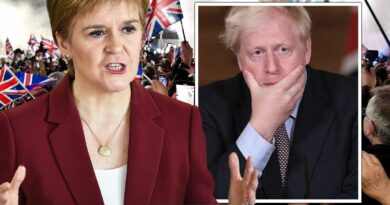McConnell lauds Bill Clinton's treasury secretary for hyperinflation warning
Will Biden’s spending plan impact inflation?
The Americas at Natixis chief economist Joseph Lavorgna and Laffer Tengler chief investment officer Nancy Tengler analyze the spending plan within the bipartisan infrastructure deal.
Senate Minority Leader Mitch McConnell gave "kudos" to former Treasury Secretary Larry Summers – a stalwart of the Obama and Clinton administrations – for his recent warnings about hyperinflation as President Biden pushes forward with his massive, multitrillion-dollar economic agenda.
"He predicted we would have raging inflation, and that is, in fact, what we are grappling with today," the Kentucky Republican said during a Monday press conference.
Consumer prices are rapidly rising, surging 5% in May from a year prior, the fastest year-over-year jump since 2008, Labor Department data shows. Excluding the volatile food and energy data, core inflation rose 3.8% from a year earlier, the quickest since June 1992.
YELLEN SAYS INFLATION WILL BE HIGHER THAN BIDEN ADMINISTRATION ESTIMATED
Most economists, including Federal Reserve Chairman Jerome Powell, attribute the inflation spike to a supply-chain bottleneck, widespread shortages and pent-up consumer demand as the economy reopens from the virus-induced shutdowns.
"I want to give Larry Summers kudos for predicting this," McConnell said.
Summers, who served as treasury secretary under President Clinton and director of the National Economic Council under President Obama, has become one of the leading voices cautioning the White House about how heavy government spending can lead to runaway inflation.
He has argued the Federal Reserve is incapable of reigning in an overheated economy by raising interest rates without triggering a recession.
CONSUMER PRICES SURGE 5% ANNUALLY, MOST SINCE AUGUST 2008
"I think policy is rather overdoing it," Summers at a CoinDesk conference in May. "The sense of serenity and complacency being projected by the economic policymakers, that this is all something that can easily be managed, is misplaced."
Even though there are signs the economy is heating up – the stock market is booming, companies are reporting stronger-than-expected earnings and prices on everything from used cars to lumber are rising – employment remains well below pre-crisis levels, with some 9.3 million Americans still out of work.
The Biden administration is betting the inflation jump will be transitory and has continued to make the case for passing the president's so-called "Build Back Better" agenda, which would include roughly $4 trillion in new spending to dramatically expand the social safety net and rebuild the nation's crumbling infrastructure.
"We're monitoring inflation very carefully and take it very seriously," Treasury Secretary Janet Yellen said recently. "No one wants to return to the bad high inflation days of the '70s."
GET FOX BUSINESS ON THE GO BY CLICKING HERE
Powell has repeatedly downplayed concerns about inflation and has pledged to maintain monetary support for the economy until the U.S. reaches full employment and inflation hits a sustainable level above 2% — neither of which he expects to happen in 2021.
'These effects have been larger than we expected and they may turn out to be more persistent than we expected," Powell said in June while testifying on Capitol Hill. But he maintained the "the incoming data are very much consistent with the view that these are factors that will wane over time and then inflation will then move down toward our goals."
Source: Read Full Article

